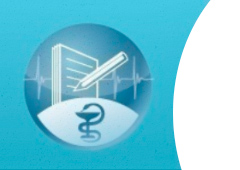The main functions and tasks of the LEC
- The main tasks of the Ethics commission are:
1.1. Independent expert evaluation of research documents/CI with the participation of people as subjects, research/CI using laboratory animals in accordance with international and national standards of good clinical and laboratory practice and the recommendations of this Commission for compliance with ethical requirements for research.
1.2. Independent and objective assessment of the safety and observance of human rights in relation to the subjects at the stage of planning and conducting the study. Legal aspects include the observance of inalienable human rights and fundamental freedoms in accordance with international norms in the field of human rights (the right to life and health, respect for human dignity, privacy, the right to information), as well as civil rights (receiving medical care and refusal of it, informed consent).
1.3. Assessment of compliance with the qualifications of researchers based on their scientific biography and/or other documentation and technical equipment of the healthcare organization conducting the study.
1.4. Development of recommendations for amendments and changes to the documents and research materials submitted for ethical examination.
1.5. Making an opinion on approval or disapproval of planned and ongoing research, including:
Examination of additions, amendments to research protocols and provision of ethical support for research with human participation in accordance with regulatory documents until their completion;
1.6. Development of standards of ethical expertise and their implementation in practice.
- The main functions of ethics are:
2.1. The Commission determines the compliance of the research with the principles of ethics of scientific research, makes recommendations for its improvement or agrees with proposals for resolving ethical issues of the authors of research/KI;
2.2. The Commission evaluates the compliance of the researcher's qualifications with the planned research on the basis of his/her scientific biography and/or other documentation;
2.3. The Commission considers the risk associated with the research and possible scientific results, but does not consider the social, political, economic aspects, which are taken into account by the administration or funding institutions;
2.4. Based on the results of the reviewed R&D/CI plans, the Commission issues a reasoned conclusion to the head or the responsible executor. If there are recommendations of the Commission on the R&D plan, the identified shortcomings should be eliminated by the applicants, the changes to the plan are approved by the meeting of the Academic Council, and an updated plan should be submitted to the Commission;
2.5. The Commission does not have the authority to prohibit the conduct of the study, but if it turns out that the recommendations of the Commission are not taken into account, or that the study is conducted without the participation of the Commission, the Commission has the right to report these violations to the management NCPDH, LPU, the customer organization, the sponsor company and the appropriate licensing authority;
2.6. If situations arise in the course of a study approved by the Commission that are questionable or contrary to ethical standards due to the fault of the researcher and/or sponsor, the organization participating in the study, the Commission has the right to inform the management of the NCPDH about the violation and to the appropriate licensing authority to consider suspending the approval given by the Commission earlier;
2.7 The results of the research/CI that have passed the preliminary ethical examination, when submitted to the press, must contain the conclusion of the Local Ethical Commission received during the planning of the work
2.8 The Commission is established and operates in accordance with national legislation and strives to comply with domestic and international requirements for the observance of guarantees for the protection of the rights and well-being of participants in biomedical research.
2.9 The Commission recognizes and respects the difference of cultures and religions in its activities.
The Commission adheres to the principles of independence, openness, competence and pluralism in its activities.

















